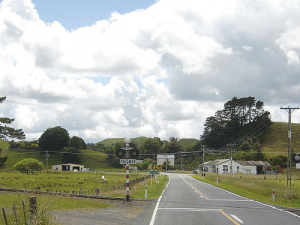A low bar!
OPINION: If the old saying that ‘political leaders are the reflection of our society’ is true, we need to have a good hard look at ourselves.
 Transport Minister Michael Wood is reminding Kiwis to exercise safety precautions when crossing railways.
Transport Minister Michael Wood is reminding Kiwis to exercise safety precautions when crossing railways.
With additional trains operating across the network, there is a need for renewed focus on rail safety, Transport Minister Michael Wood emphasized at the launch of Rail Safety Week 2022.
“Over the last five years the Government has invested significantly to improve level crossings around the country, with more than 40 pedestrian and road level crossing upgrades complete in Auckland and Wellington and 36 road crossings on the State Highway network finished nationwide,” Wood said.
In the past decade, 155 people have died in collisions with trains in New Zealand, and a further 91 people have been seriously injured.
In the year to 30 June, eight people lost their lives in collisions with trains.
“The fact is collisions with trains are usually avoidable,” says Wood. “We all need to make sure that whenever we approach a rail line – we are alert, obey signs, warning bells and barriers, and look both ways for trains.”
In the last year there have been 28 collisions at public crossings, more than 13 collisions in 2021. More than 60% of those collisions last year were at level crossings that already have protections, like barrier arms, flashing lights and bells.
“Covid-19 lockdowns, alert level changes and an increase in people working from home are likely to have contributed to the drop in collisions in recent years – with fewer cars and trucks on our roads,” Wood says.
“But the jump in the last year is deeply concerning. With New Zealand welcoming visitors back to our shores, it is crucial that we take rail safety seriously and are cautious and patient around level crossings.
“I encourage all Kiwis to get behind KiwiRail and TrackSafe NZ’s 2022 Rail Safety Week Campaign, which is focused on a ‘blow left, blow right’ superstition,” he says.
“It’s more important than ever that we learn and follow safe behaviours now.”
An independent report, prepared for Alliance farmer shareholders is backing the proposed $250 million joint venture investment by Irish company Dawn Meats Group.
Whangarei field service technician, Bryce Dickson has cemented his place in John Deere’s history, becoming the first ever person to win an award for the third time at the annual Australian and New Zealand Technician of the Year Awards, announced at a gala dinner in Brisbane last night.
NZPork has appointed Auckland-based Paul Bucknell as its new chair.
The Government claims to have delivered on its election promise to protect productive farmland from emissions trading scheme (ETS) but red meat farmers aren’t happy.
Foot and Mouth Disease outbreaks could have a detrimental impact on any country's rural sector, as seen in the United Kingdom's 2000 outbreak that saw the compulsory slaughter of over six million animals.
The Ministry for the Environment is joining as a national award sponsor in the Ballance Farm Environment Awards (BFEA from next year).

OPINION: For years, the ironically named Dr Mike Joy has used his position at Victoria University to wage an activist-style…
OPINION: A mate of yours truly has had an absolute gutsful of the activist group SAFE.